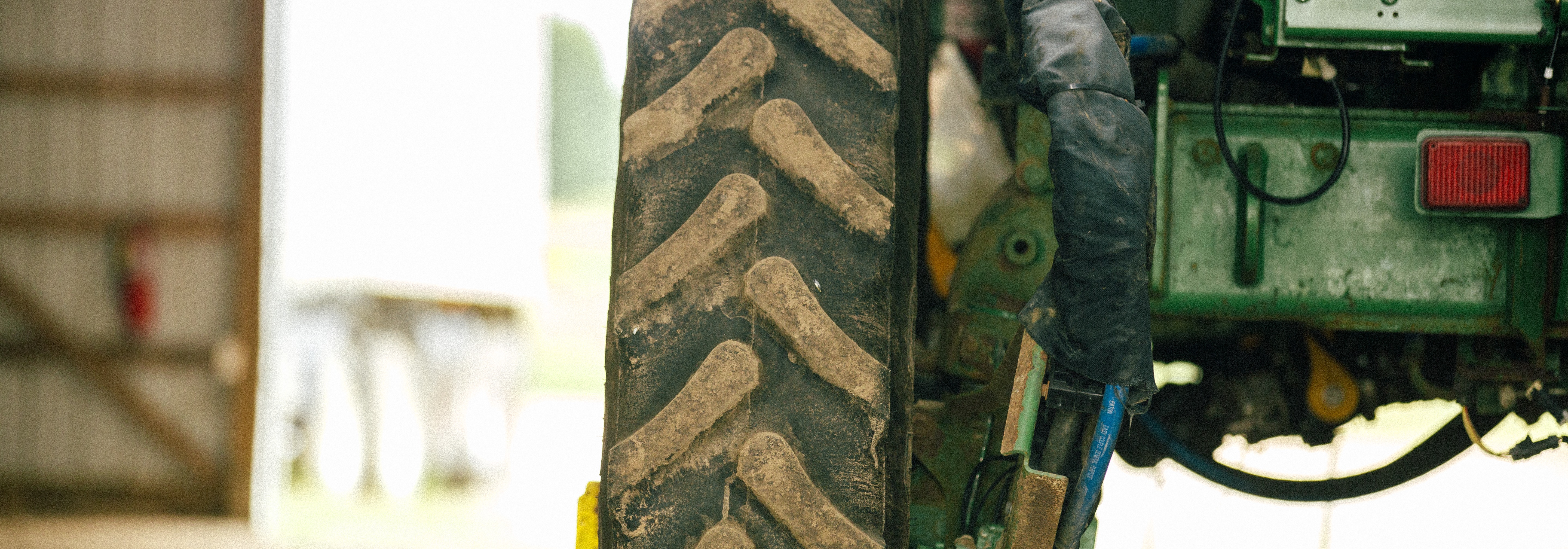The Ultimate Guide to Choosing the Right Tires for Your Farm Equipment
The Ultimate Guide to Choosing the Right Tires for Your Farm Equipment
When it comes to farming, having the right equipment is crucial. And one of the most important aspects of that equipment is the tires. Whether you have tractors, combines, or any other type of farm machinery, choosing the right tires can significantly impact your efficiency, productivity, and overall success. With so many options available on the market, it can be overwhelming to determine which tires are the best fit for your specific needs. So, we at CFI created this ultimate guide to help you make an informed decision when selecting tires for your farm equipment.
- Consider Your Terrain: Before you start looking at tire options, it's essential to evaluate the terrain on your farm. Is it mostly flat or hilly? Are there muddy areas or rocky surfaces? Understanding your terrain will help you determine the tread pattern, tire size, and type of tire that will provide the best traction and stability for your equipment.
- Analyze Your Equipment's Requirements: Different types of farm machinery have varying tire specifications. Check the manufacturer's recommendations for your specific equipment to identify the appropriate tire size, load capacity, and inflation pressure. Choosing tires that meet these requirements will ensure optimal performance and prevent unnecessary strain on your machinery.
- Determine Your Tire Needs: Depending on your farm operations, you might require specialized tires to enhance efficiency. For example, if you're frequently operating on muddy fields, consider mud tires with deeper treads for superior traction. Alternatively, if you're performing tasks that involve road travel, all-terrain tires might be a better option to ensure a smooth and comfortable ride.
- Assess Durability and Longevity: Farming can be a demanding and rigorous task, so durability is of utmost importance. Look for tires with reinforced sidewalls, puncture-resistant compounds, and excellent load-bearing capabilities. Investing in high-quality, long-lasting tires might seem costly initially, but they will save you money in the long run by minimizing downtime and the need for frequent replacements.
- Consider Maintenance: Proper tire maintenance is essential for optimal performance and longevity. Some tires require regular rotation, while others need periodic pressure checks and adjustments. Assess your ability to maintain the tires and choose options that align with your maintenance capabilities.
- Seek Expert Advice: If you're unsure about the best tire options for your farm equipment, consult with tire experts or agricultural consultants. They have the knowledge and experience to guide you in selecting the most suitable tires based on your specific requirements and budget.
- Budget Considerations: While it's tempting to focus solely on the price tag, remember that quality and suitability should be your primary concerns. Cheaper tires may seem like a cost-effective option initially, but they may wear out quickly and result in additional expenses in the long term. Assess your budget and aim for the best possible tires within your financial constraints.
Choosing the right tires for your farm equipment is a crucial decision that can impact your farm operations. By considering factors such as terrain, equipment requirements, tire needs, durability, maintenance, seeking expert advice, and budget considerations, you can make an informed choice that will enhance your productivity, efficiency, and overall success on the farm.
Your tires are a critical component that connects your equipment to the ground. So, take the time to research, talk with the experts at CFI, and make a decision that will keep your farm rolling smoothly and steadily toward success.


